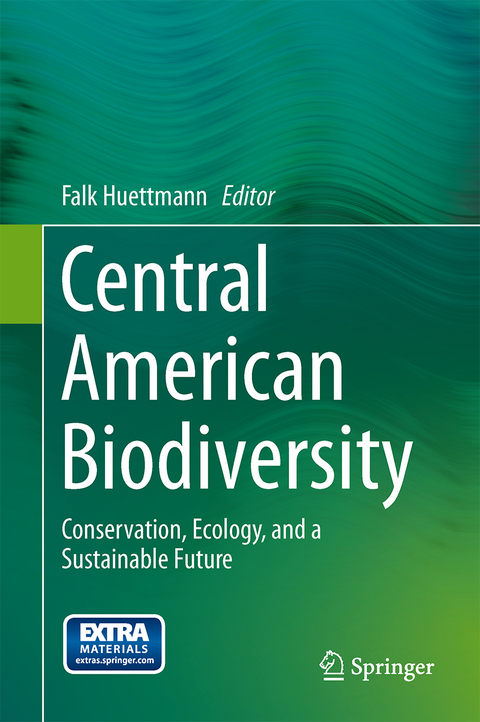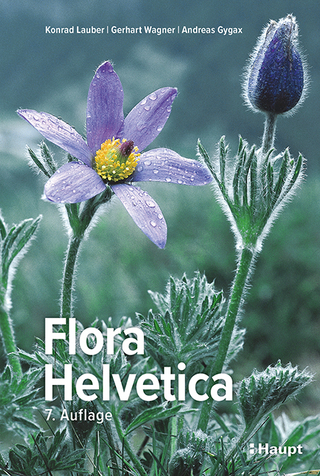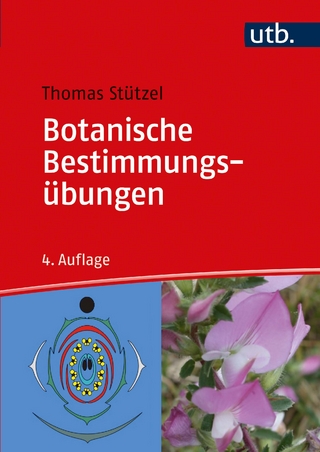
Central American Biodiversity
Springer-Verlag New York Inc.
978-1-4939-2207-9 (ISBN)
This book highlights key results and lessons learnt from two field sites, La Suerte in Costa Rica and Ometepe Nicaragua. It provides long term data on species abundance and distribution. Primates receive specific attention in this book, as they are flagship species and good indicators for the “health” of an ecosystem, but as well a money maker. Many primate species are sensitive to habitat alteration, and are often hunted out first. But they play an important role as seed dispersal agents for the regeneration of the forest. The book then compares results from the two field sites with regional trends, and explores potential solutions such as REDD+. This book strongly calls for new approaches in conservation, it makes the case for looking beyond the pure species biology and classic conservation angle and to take into account the economic and political realities.
Dr. Falk Huettmann is Associate Professor in the Biology and Wildlife Department, Institute of Arctic Biology, University of Alaska-Fairbanks. His research interests are in wildlife/habitat modeling, GIS and remote sensing, and data management worldwide.
A Short Introduction to Tropical Land and Seascapes and their Wildlife Conservation Management.- If leaders like Alexander von Humboldt, Ronald Reagan and Xi Jinping would have been environmental justice radicals using public internet and drones: A short political ecology of Central America with regards to global agenda setting in 2014.- Bird conservation status and meaningful socioeconomic correlates in Central America: Results from an open access data mining approach for parrots using machine learning indicate serious economic problems.- Reversed Kuznets Curves in the Caribbean: Linking Marine Biodiversity Endangerment with the National GDP (Gross Domestic Product) and assessed with Human Metrics (life expectancy, infant mortality, population growth rate).- An Oceanography Conservation View of Central America: Caribbean Wealth, Pacific Wilderness, Plunder and Mis-Management meets Seafloor Mining, Deep See Drilling, Climate Change, and Human Population Explosion in the EEZs and beyond.- Coral Reefs of Central America, Dimethylsulphide (DMS) Seascapes, Open Access Data, GIS and Machine Learning Predictions: Another application of the new Megascience for Global Sustainability.- Field Schools and Research Stations in a Global Context: La Suerte (Costa Rica) and Ometepe (Nicaragua) in a wider Perspective.- A Brief History of the Molina Family, and the Birth of Maderas Rain Forest Conservancy (MRC) at the La Suerte and Ometepe field stations: A narrative by Renee Molinia.- Teaching (Tropical) Biodiversity with International Field Schools: A Flexible Success Model in a Time of ‘Wireless’ Globalization.- A Documented Plant and Tree Species Narrative of La Suerte (Costa Rica) and Ometepe (Nicaragua): Overcoming Ancient Taxonomy Demons for a more relevant and valid Conservation ResearchEffort in the Tropics.- The incredible world of insects in Central America: A virtual interview with Prof Dr Bugs at La Suerte (Costa Rica) and Ometepe (Nicaragua).- Amphibians and reptiles at the Ometepe and La Suerte field sites: Towards an overview of the evolution, distribution, and diversity of Central America's herpetofauna..- Exciting findings and insights from the Caiman study at La Suerte: First lessons from the scientific frontline.- Conservation of a Neotropical herpetofauna: An introduction to the crisis of amphibians and reptiles in Central America and beyond.- Mammalian biodiversity conservation at two biological stations in Nicaragua and Costa Rica.- On the relevance and moral impediment of digital data management, data sharing and public open access and code in (tropical) research: The Rio Convention revisited towards Mega Science and Best Professional Research Practices.- Conservation research in the Cloud Forest of Central America with lessons from Maderas vulcanoe, Ometepe, Nicaragua: A first-person narrative about very tough field work, unfinished data, and climate justice while running out of time.- GRID sampling for a global rapid biodiversity assessment: Methods, Applications, Results and Lessons Learned.- Birds of Ometepe (Nicaragua) and La Suerte (Costa Rica): From a narrative and species lists over species richness and bird photo documentations to a Central American conservation ornithology.- Acoustic Determinants to Group-Specific Vocalizations and Dialect: The effects of environment on infant vocalizations of Cebus capucinus. Utilizing two field sites with a shared taxon for a comparative ecological study.- Factors Involved in Variation in Tree and Species Use by Mantled Howler Monkeys: A Case Study of Resource Use in Sector Santa Rosa, Area deConservacion, Costa Rica.- Living in islands of forests: nutritional ecology of the howler monkey (Alouatta palliata) at La Suerte Biological Field Station, North-eastern Costa Rica.- A First Rare Species Action List for La Suerte and Ometepe: Correlates with Extinction, Invasion, Declines, the Allee Effect and no Recovery in Island Habitats.- Lost species at La Suerte (Costa Rica) and Ometepe (Nicaragua): Facts from over 10 years of research, some speculations, liabilities and a very grim future outlook to resolve.- Genetics as a tool for biodiversity conservation: examples from Central America.- A Systematic Framework for Spatial Conservation Planning and Ecological Priority Design: An Example from St. Lucia, Eastern Caribbean.- Global Change in Central America, and Global Transitions toward a Carbon-free Society achieved through International Field Schools ? Carbon Dioxide remains the most Toxic Gas for Mankind to be resolved.- Human Aspects and Population Structures in Central America and its so-called Free Trade Zones: Imperialism, Immigration, Remittance Payments, Leakage, Brain Drain, Global Citizenship and Virtually Unlimited Inequalities during War and Globalization.- A short presentation and discussion of digital research data sets in Central America, and for the field schools of La Suerte (Costa Rica) and Ometepe (Nicaragua).- Assessments of carbon stock hotspots in Nicaragua and Costa Rica.- Selected Undergraduate Student Projects at La Suerte and Ometepe Island: Try outs, Results, First Publications and more Ideas to Progress Research and Conservation.- The Good Future of La Suerte and Ometepe between Heaven and Decay: An informed Outlook for Central America leaves us with dramatic Environmental Obstacles for Conservation Management.- Appendix 1 (Digital Format and PDF Hardcopy): Best knownLa Suerte and Ometepe Taxonomic Species lists.- Appendix 2 (Digital Format and PDF Hardcopy): Online Photos for La Suerte’s and Ometepe’s Taxonomic Species lists.- Appendix 3 (Digital Format and PDF Hardcopy): GIS habitat maps for La Suerte and Ometepe study areas.- Appendix 4 (Digital Format and PDF Hardcopy): GIS species sighting maps for La Suerte and Ometepe study areas.- Appendix 5: Digital reference list of publications, thesis and projects done at La Suerte and Ometepe.- Appendix 6: Sample Curricula and a Prep List for Visiting Students
| Zusatzinfo | 80 Illustrations, color; 179 Illustrations, black and white; XXVIII, 805 p. 259 illus., 80 illus. in color. |
|---|---|
| Verlagsort | New York |
| Sprache | englisch |
| Maße | 155 x 235 mm |
| Themenwelt | Naturwissenschaften ► Biologie ► Botanik |
| Naturwissenschaften ► Biologie ► Ökologie / Naturschutz | |
| Schlagworte | biodiversity • Central America • landscape ecology • Rainforest • Tropical |
| ISBN-10 | 1-4939-2207-6 / 1493922076 |
| ISBN-13 | 978-1-4939-2207-9 / 9781493922079 |
| Zustand | Neuware |
| Haben Sie eine Frage zum Produkt? |
aus dem Bereich


